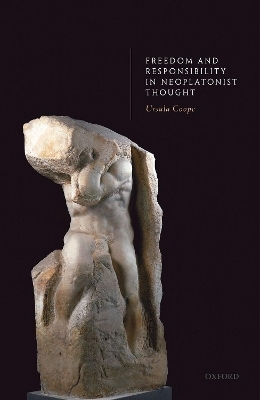
Freedom and Responsibility in Neoplatonist Thought
Oxford University Press (Verlag)
978-0-19-882483-1 (ISBN)
The Neoplatonists have a perfectionist view of freedom: an entity is free to the extent that it succeeds in making itself good. Free entities are wholly in control of themselves--they are self-determining, self-constituting, and self-knowing. Neoplatonist philosophers argue that such freedom is only possible for non-bodily things. The human soul is free insofar as it rises above bodily things and engages in intellection, but when it turns its desires to bodily things, it is drawn under the sway of fate and becomes enslaved. Ursula Coope discusses this notion of freedom and its relation to questions about responsibility. She explains the important role of notions of self-reflexivity in Neoplatonist accounts of both freedom and responsibility. In Part I, Coope sets out the puzzles Neoplatonist philosophers face about freedom and responsibility and explains how these puzzles arise from earlier discussions. Part II explores the metaphysical underpinnings of the Neoplatonist notion of freedom (concentrating especially on the views of Plotinus and Proclus). In what sense, if any, is the ultimate first principle of everything (the One) free? If everything else is under this ultimate first principle, how can anything other than the One be free? What is the connection between freedom and nonbodiliness? Finally, Coope considers in Part III questions about responsibility, arising from this perfectionist view of freedom. Why are human beings responsible for their behaviour, in a way that other animals are not? If we are enslaved when we act viciously, how can we be to blame for our vicious actions and choices?
Ursula Coope is Professor of Ancient Philosophy at the University of Oxford, a Fellow of Keble College, and an Emeritus Fellow of Corpus Christi College. Before coming to Oxford, she was a lecturer at Birkbeck. She has held visiting positions at Princeton and at New York University. She has been the recipient of a British Academy Mid-Career Fellowship and of a Philip Leverhulme Prize. She is the author of Time for Aristotle (Oxford 2005) and has also written several articles on Aristotle's accounts of change, agency, and the infinite.
Introduction
Part I: The Puzzles
1: Freedom and enslavement
2: Responsibility, voluntariness, and what depends on us
3: Freedom and responsibility: Two discourses combined
4: Obstacles to freedom? Obstacles to responsibility?
Part II: Freedom
5: Freedom and the One
6: Under the One but in control of oneself
7: Self-making and nonbodiliness
8: Freedom, dependence and being a part
Part III: Responsibility
9: Responsibility and the myth of Er
10: Plotinus on responsibility and having a free principle
11: Proclus on self-movement and the logoi within
12: Rational assent and self-determination to the better or the worse
Conclusion
| Erscheinungsdatum | 03.01.2020 |
|---|---|
| Verlagsort | Oxford |
| Sprache | englisch |
| Maße | 165 x 245 mm |
| Gewicht | 572 g |
| Themenwelt | Geisteswissenschaften ► Philosophie ► Ethik |
| Geisteswissenschaften ► Philosophie ► Metaphysik / Ontologie | |
| Geisteswissenschaften ► Philosophie ► Philosophie Altertum / Antike | |
| ISBN-10 | 0-19-882483-1 / 0198824831 |
| ISBN-13 | 978-0-19-882483-1 / 9780198824831 |
| Zustand | Neuware |
| Haben Sie eine Frage zum Produkt? |
aus dem Bereich


